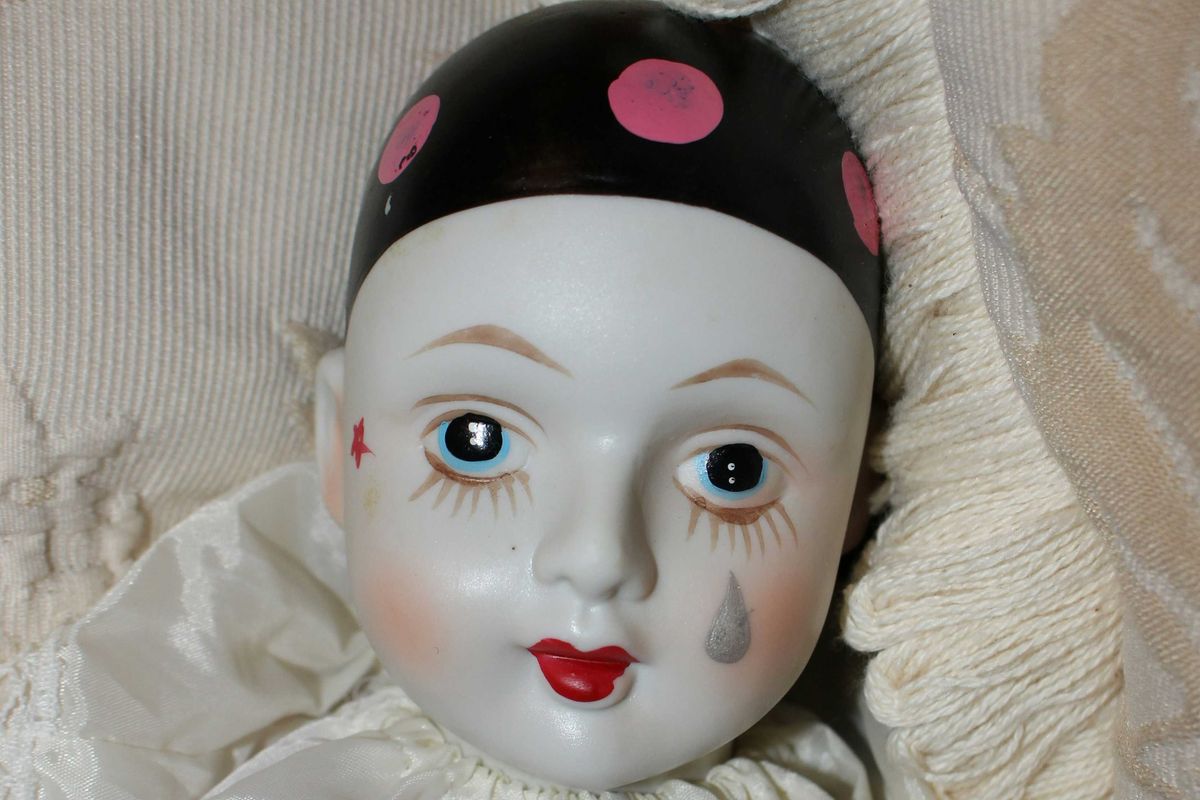In unearthed 1970’s clip, Jonathan Winters explains why being sensitive is a huge asset
It's obvious why he and Robin Williams were such great friends

Jonathan Winters
Jonathan Winters had a big, beautiful mind with his hand in many creative pots. A renowned comedian, actor, author, and TV host, he was also a visual artist — a painter, to be exact. He was loved… and he was uniquely funny. But he, like most humans, was complex. He was open about his struggles with bipolar disorder and his time in an institution. But, like many big, beautiful minds, he embraced his rollercoaster moods and often let them guide him into genius. In fact, his insights into the mind were decades ahead of their time.
In 1973, Winters gave an interview to City University, New York (CUNY) public television. The interviewer, James Day, asked many questions unveiling an extremely vulnerable (but also hilarious) Winters. In a resurfaced clip from that interview, he's asked if he found himself to be "overly sensitive." His answer was truthful and rather groundbreaking.
Winters acknowledges that he is, in fact, "oversensitive." And that being so is a "disadvantage in many ways" because it makes him vulnerable. But he adds, "I think, without sounding corny or saccharine, I think that we that are overly sensitive lead richer lives because of it." When asked why, he says, "Well, because we're on a frequency. We're tuned in to more than the guy, certainly, that is hard-nosed and bitter and bugged...who has little to no humor or sensitivity."
When the interviewer pushes back again about the vulnerability, Winters responds, "You're vulnerable to a lot of hurts. And people, on a number of occasions, are inclined to say cruel things to you. And an overly sensitive person does take everything, all the arrows so to speak. But as I say again, I think you lead and we lead richer lives."
Day asks, "Is this the way you were when you were a child in Dayton, Ohio?" Winters answers unequivocally, "Yes, yes I was. My life was not unique to that of many others." And when Day suggests that having been an only child might have contributed to his sensitivity, Winters jokes, "I always say, I didn't have any brothers and sisters. But that means I'm first on the will."
It's not uncommon, of course, for people with creative minds to consider themselves sensitive. Winters’s Mork and Mindy co-star and dear friend Robin Williams was notoriously similar in that regard. Winters passed away just about a year before Williams did. And of Winters, Williams posted on his Facebook page, "First he was my idol, then he was my mentor and amazing friend. I'll miss him huge. He was my Comedy Buddha. Long live the Buddha."

Comments under the clip were quite lovely. One shares, "Hemingway said the best people possess a feeling for beauty, the courage to take risks, the discipline to tell the truth, the capacity for sacrifice. Ironically, their virtues make them vulnerable; they are often wounded, sometimes destroyed."
Another writes, "This is why he and Robin Williams loved each other so. Kindred souls."
Full interview, Day at Night, Jonathan Winters, 1973 www.youtube.com
But it's important to note that when using the word "sensitive," Winters did not mean this in a negative sense. In Andre Sólo's piece "Why Being Sensitive is a Strength" for Time Magazine, he writes, "As sensitivity is a personality trait, being sensitive means you take in more information from your environment, and you do more with it. Sensitive people are wired at a brain level to process information more deeply than others do. That includes sensory input (like noticing the texture of a fabric), emotional input (reading social cues), and ideas (spending a longer time thinking things through and making more connections between concepts)."
This completely supports the notion that sensitivity often equates to creativity and deep emotions/thoughts. "The most well-known and celebrated sensitive gift is creativity. It’s perhaps the one generalization that’s true: Sensitive people tend to be highly creative, and many — perhaps most — artists, musicians, and actors are themselves sensitive people." (He also adds that it doesn't just end with artists, but rather many "Big Thinkers," such as Charles Darwin.)
However sensitive Jonathan Winters was, he didn't just own it. He rightfully wore it like a badge of honor and used it to create some of the world's best comedy and art.
- Student athlete pens powerful letter about mental health as he hangs up his cleats ›
- Illinois is fighting the anxiety crisis by giving students five mental health days a year ›
- After learning I’m an empath, life makes so much more sense. Are you one, too? ›
- Wrestler turned mental health advocate takes a stand for those who are labeled 'too sensitive' - Upworthy ›



 Each of those arms has its own brain?
Each of those arms has its own brain?
 Homemade granola bars with chocolate chips – perfect for a delicious snack!
Homemade granola bars with chocolate chips – perfect for a delicious snack! Refresh with a healthy green juice boost.
Refresh with a healthy green juice boost. Making fresh orange juice in the kitchen. 🍊
Making fresh orange juice in the kitchen. 🍊 Be careful with supplements.
Be careful with supplements.

 A white porcelain doll with a tear stain. Photo by
A white porcelain doll with a tear stain. Photo by 